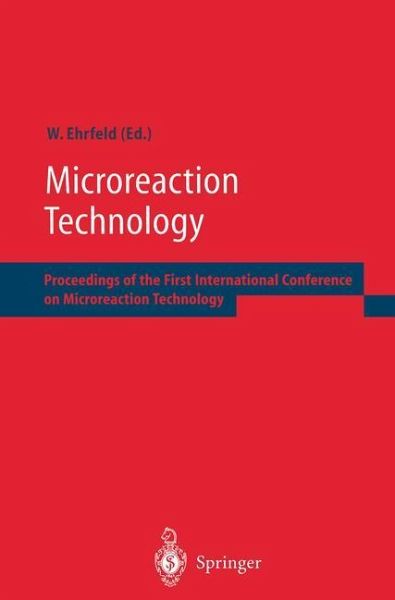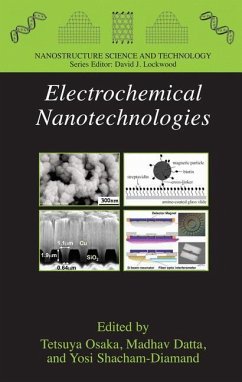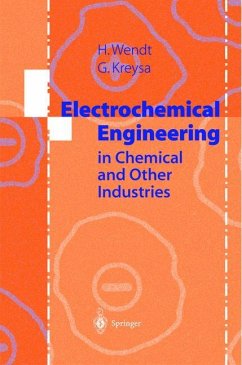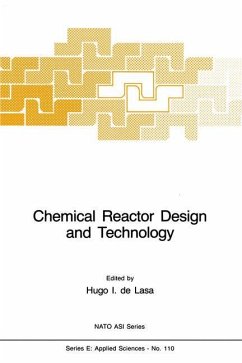
Microreaction Technology
Proceedings of the First International Conference on Microreaction Technology
Herausgegeben: Ehrfeld, Wolfgang
Versandkostenfrei!
Versandfertig in 6-10 Tagen
76,99 €
inkl. MwSt.

PAYBACK Punkte
38 °P sammeln!
Microreaction technology is the logically consistent application of microsystem techniques in chemical reaction and process engineering. Miniaturization in this field is the strategy of success and requires the development of small, inexpensive, independent and versatile chemical reaction units. Microreaction technology is at present regarded as one of the fastest evolving and most promising disciplines in chemical engineering, combinatorial synthesis and analysis, pharmaceutical drug development and molecular biotechnology. A broad range of microstructurable materials is a prerequisite for mi...
Microreaction technology is the logically consistent application of microsystem techniques in chemical reaction and process engineering. Miniaturization in this field is the strategy of success and requires the development of small, inexpensive, independent and versatile chemical reaction units. Microreaction technology is at present regarded as one of the fastest evolving and most promising disciplines in chemical engineering, combinatorial synthesis and analysis, pharmaceutical drug development and molecular biotechnology. A broad range of microstructurable materials is a prerequisite for microreaction technology and the development of microreactors goes hand in hand with the availability of a number of modem, versatile microfabrication technologies. Today, it is possible to manufacture tbree dimensional microstructures, almost without any restrictions with regard to design and choice of suitable materials, for various chemical applications -just in time to support the development of functional units for microreactors, e. g. micromixers, micro heat exchangers, micro extractors, units for phase transfer, reaction cham bers, intelligent fluidic control elements and microanalysis systems. The advantages of microreactors, e. g. the use of novel process routes, the re duction of reaction byproducts, the improvement of 'time to market', the high flexibility for all applications requiring modular solutions, have had a strong im pact on concepts of sustainable development. Many of the leading companies and research institutes in the world have recognized the tremendous possibilities of microreactor concepts and of their economic potential, and have thus initiated worldwide research and development activities.












